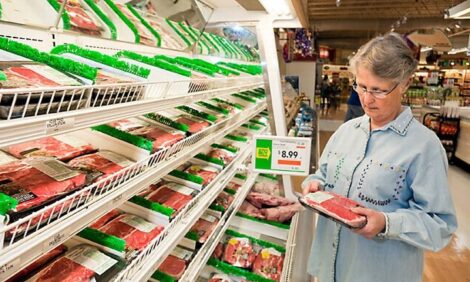



Weekly Overview: International Agencies Tackle Food Insecurity
ANALYSIS - A new report is highlighting the impacts of unusual weather events on feed and food supplies across the world and a number of international agencies have put in place some measures to tackle the problems. Current high and volatile commodity prices will push food prices to record highs, according to another new report, and the Vietnamese pig industry is continuing to expand despite facing a number of challenges.Weather conditions have been the driving force behind the three food price 'spikes' that the world has experienced in the last five years, according to a new report.
While droughts in one part of the world or another have hit grain production every second year since 2007, floods elsewhere have also hit crop yields, putting up costs of production across the livestock sectors.
At the same time, according to the Food and Agricultural Organisation of the United Nations, the International Fund for Agricultural Development and the World Food Programme, the increased use of crops that could be used for food for non-food purposes and speculation and hedging have led to more and more volatility in food prices.
"Until we find the way to shock-proof and climate-proof our food system, the danger will remain," the organisations said in a joint statement earlier this month.
The three organisations have pinpointed the main reasons for global food and feed price hikes and they claim that they have put in place "policies and instruments" to tackle the problems.
They warn that for every 10 per cent increase in the price of food, the World Food Programme has to find $200 million a year in food assistance, and they have called for investment in agriculture and social protection and an adjustment in policies to grow alternative uses for grains.
The risk of sharp food price rises exists because global food production is largely in the hands of only a few major food producers and when poor weather causes poor yields and high prices, countries are more likely to put domestic protection measures in place.
"Countries must avoid panic buying and refrain from imposing export restrictions which, while temporarily helping some consumers at home, are generally inefficient and make life difficult for everyone else," the FAO, IFAD and WFP said.
Sharply rising and volatile agricultural commodity prices are causing the world to re-enter a period of 'agflation', with food prices forecast to reach record highs in 2013, according to a new Rabobank report.
In their latest analysis of the pig industry in Viet Nam, Ron Lane and Meggie Vo of Genesus write that pork accounts for about 73 per cent of the total meat produced there in the first seven months.
Pig production during that time has been difficult, they say, because of disease challenges, increasing cost of production, consumers switching to other proteins and a shortage of capital. The latest survey – from June 2012 – reveals a pig population of 26.7 million, 1.5 per cent more than a year previously.
Perhaps reflecting the wet summer in the UK, the latest pig health report from AHVLA suggests that poor feed intake and general ill-thrift in a batch of weaners in the east of the country may have been caused by mould and/or mycotoxins.








